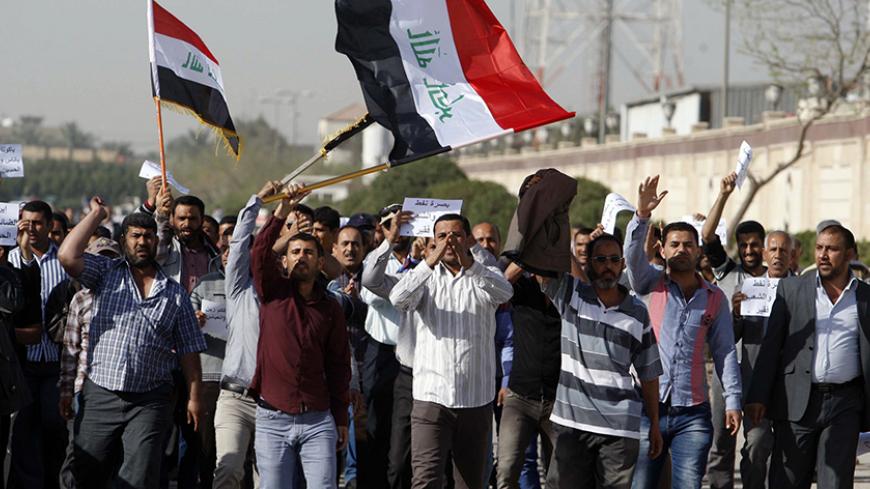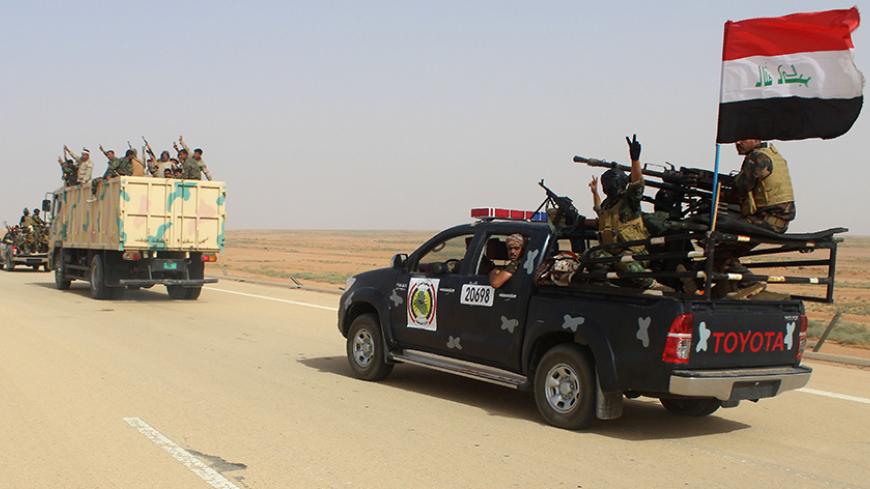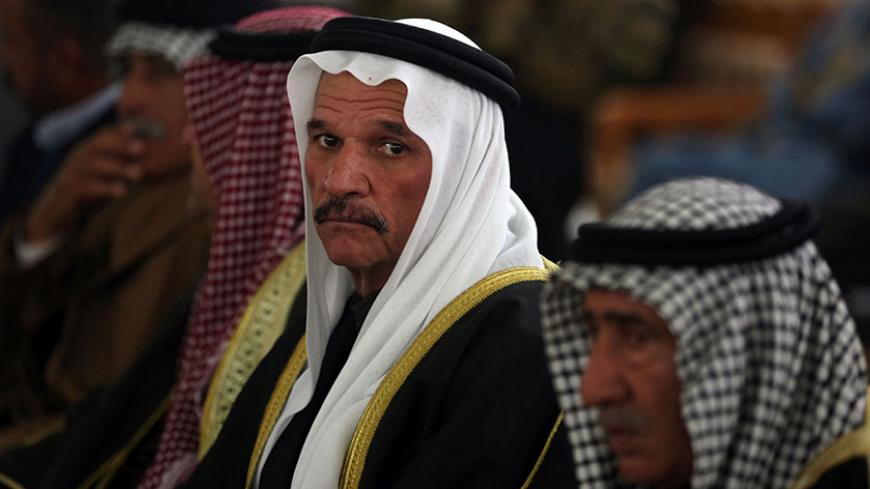
Abadi outgunned in fight to disarm tribes
Subscribe for less than $9/month to access this story and all Al-Monitor reporting.
OR
Create an account for a 7-day trial to access this article and all of AL-Monitor.
By entering your email, you agree to receive ALM's daily newsletter and occasional marketing messages.












![Iraqi newlywed Naheb Saidi, 25, sits holding a Koran Holy book and a bouquet of flowers during her wedding party in Baghdad July 1, 2004. [As the world watched Saddam Hussein's first court appearance, the couple took their vows to lead a new life together.] - RTXMPMI](/sites/default/files/styles/article_header/public/almpics/2015/06/RTXMPMI.jpg/RTXMPMI.jpg?h=f7822858&itok=xTpMIsO6)


